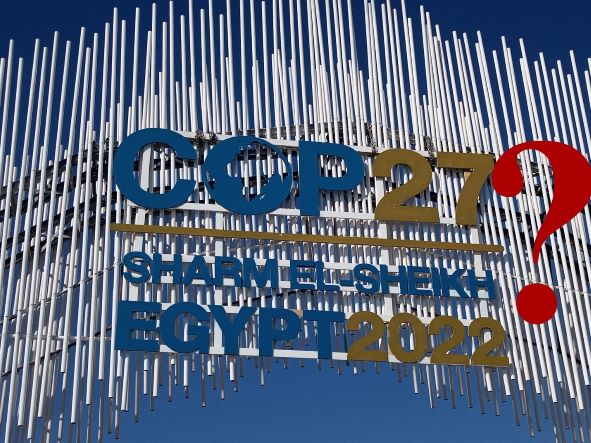By Evelyn Kpadeh Seagbeh
The 2022 Global Climate Change Conference in Sharm El-Sheikh, Egypt failed to end on the scheduled date on Friday, November 18, with negotiators from 197 countries yet to agree on a key despite 13 days of deliberations.
Most of the over 46 thousand delegates, civil societies, environmentalists, climate justice campaigners, government representatives, and scientists have departed for their respective countries and yet, the negotiations remain in a deadlock on the way forward.
Negotiators are yet to come to terms on several issues.
“We are at crunch time in the negotiations. There is a breakdown in trust between North and South, and between developed and developing countries. This is no time for finger-pointing.”
“The blame game is a recipe for mutually assured destruction. I am here to appeal to all parties to rise to this moment and the greatest challenge facing humanity. The world is watching and has a simple message: stand and deliver,” COP27 President, Sameh Shoukry told negotiators Friday and repeated to the media on Saturday morning.
There is a deadlock over 4 major contentious issues.
They are centered around mitigation work programs, global goals on adaption, the setting up of financing facilities for loss and damages, and which fossil fuels should be phased out.
The 2022 edition of the UN climate summit was expected to deliver only one major new result – the setting up of a fund or a facility or some sort of arrangement through which developing countries suffering loss and damage through disasters worsened by climate change – such as storms and floods – could be paid quickly.
That has become stuck over two issues – which countries should be eligible to get the money, and which countries should be asked to pay into such a facility. Most developed countries want the recipients to be limited to what they call “vulnerable developing countries” while developing countries point out that there is no such list of countries. They want all developing countries to be eligible to receive funds.
The division between developed and developing countries is an integral part of the UN Framework Convention on Climate Change, with developed countries asked to take on binding obligations to pay developing countries to move towards a greener economy, adapt to climate change impacts, and how deal with loss and damage.
But many rich countries are pointing out that the situation has changed since the convention was formed, that countries like China and India are now among the largest world economies, and they should be asked to pay into the fund. Both countries disagree vehemently. China and India have so far insisted that they “cannot pay illegal obligations”, arguing that they are developing countries too.
Parties to the final negotiations are also differing on the issues of adding oil and gas to coal in the phasedown of fossil fuels which use is emitting greenhouse gases and causing climate change.
It’s yet unknown when the final decision for Egypt’s COP27 will be announced and whether or not the key issues will be resolved.
More updates will be out soon.

